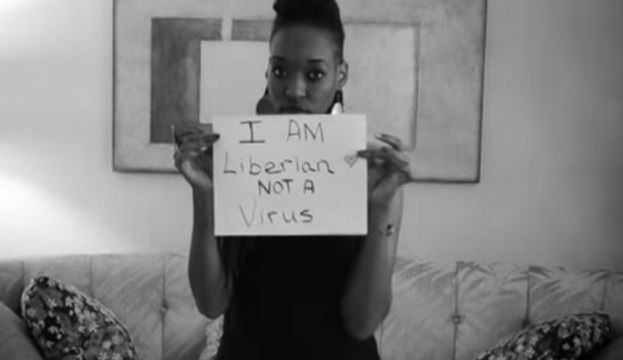This post first appeared ThinkProgress.

A Liberian-American woman filmed a now-viral video to challenge xenophobic attitudes in light of Ebola’s proliferation. With the slogan “I am a Liberian, not a virus,” Shoana Solomon sheds light on the recent stigmatization of people of African descent.
After Solomon’s 9-year-old daughter was told she has a disease because she is from Liberia, Solomon shared the incident on Facebook. A day later, Solomon’s niece sneezed in school and was sent home, despite having never traveled to Liberia or interacted with anyone who had visited the country in the past two years.
So Solomon, a TV presenter, decided to take action by publicly addressing misdirected discrimination. In her video, Solomon holds a sign with the campaign’s slogan and talks about her child’s experience, as well as the experiences of many others who have been ostracized.
“I am hurt and upset. We are Liberians, Sierra Leoneans, Guineans and Nigerians. We live in a region that has been devastated by a deadly disease, but we’re not all infected. It is wrong to stereotype and stigamatize an entire people. Remember, we are human beings.”
Rife with racial undertones, Ebola hysteria, largely stemming from misinformation, has contributed to stigma of many Africans since the first Ebola case came to the US. For instance, a community college in Texas started turning away students in good health from countries with Ebola cases. Restaurants in Texas are also refusing to serve Liberian immigrants. And due to parents’ fears of their children contracting the infection, two Rwandan students have been unable to attend school, even though Ebola is not an issue in the East African country.
Solomon is not the first person to start an internet campaign to change the framing of the Ebola narrative.
Acclaimed actor Jeffrey Wright recently launched the #CrushEbolaNow campaign to counter the perception that the virus is a death sentence. “We could do well focusing on the strengths of the affected regions and not entirely on the weaknesses despite the enormity of the challenges,” he said in an interview with ThinkProgress.
“I found the news narratives disturbing. It didn’t take into account the absence of health infrastructure in these countries. These reports say that the outbreak is a function of the virus when it’s not. The outbreak is a function of economic underdevelopment. I wanted to reframe that narrative and speak closer to the reality that exists there.”


